The “now” generation’s thirst for instant news is squeezing out good journalism. We need an attitude change to secure its survival
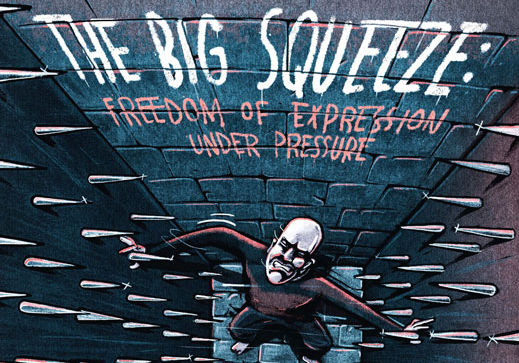

The “now” generation’s thirst for instant news is squeezing out good journalism. We need an attitude change to secure its survival

In the spring issue of Index on Censorship magazine, we look at how free speech around the world is under massive pressure from conflicting interests.
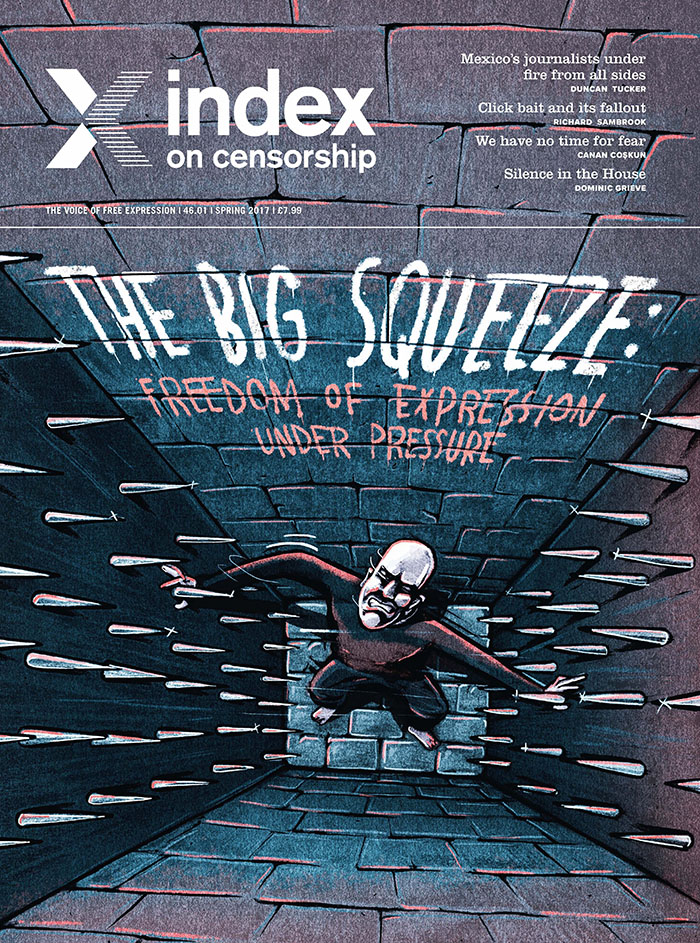
Spring 2017 contributors include Richard Sambrook, Dominic Grieve, Roger Law, Karim Miské, Mark Frary and Canan Coşkun
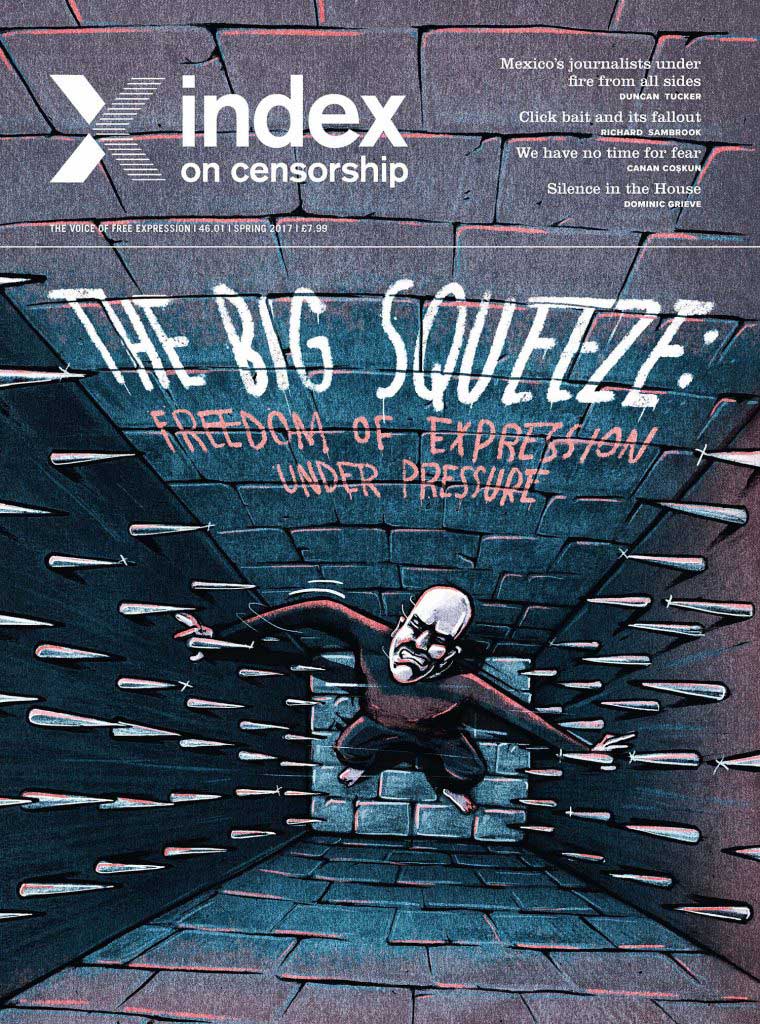
The spring 2017 issue of Index on Censorship magazine looks at how pressures on free speech are currently coming from many different angles, not just one. Don’t miss our special feature on how to spot fake news, articles from former BBC World Service director Richard Sambrook and former UK attorney general Dominic Grieve, an exclusive interview with the Spanish puppeteer arrested last year, and fiction from award-winning writer Karim Miské.

In the summer 2016 issue of Index on Censorship magazine award-winning journalist Lindsey Hilsum asks if reporters should still be heading to warzones.
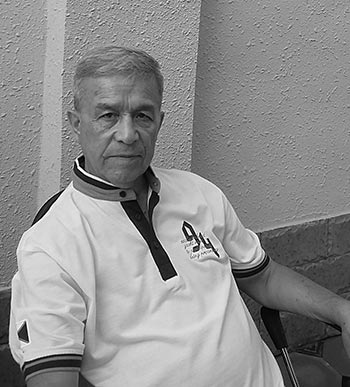
Arrested twice and imprisoned for 14 years, writer Mamadali Makhmudov was released in 2013 after an international outcry. He continues to be blacklisted and his works are silenced.
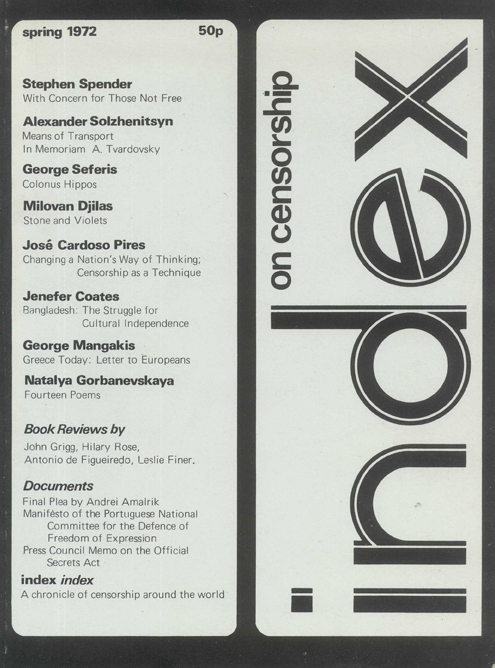
A quarterly magazine set up in 1972, Index has published oppressed writers and refused to be silenced across 252 issues.
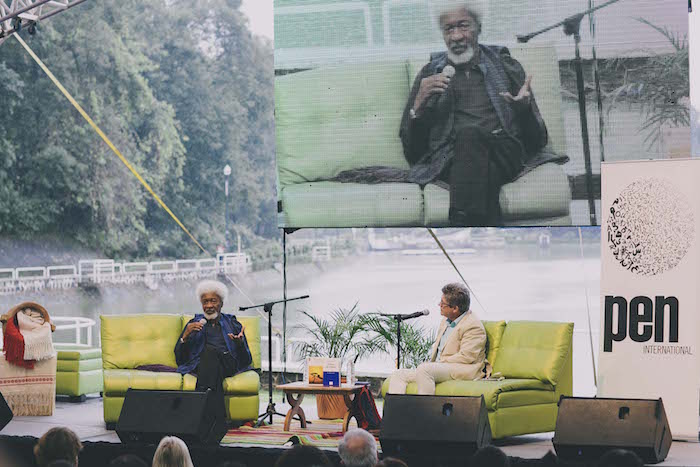
Dealing with mutilated bodies, an attempted acid attack and speakers arresting each other. All part of Peter Florence’s job organising Hay literature festivals around the world
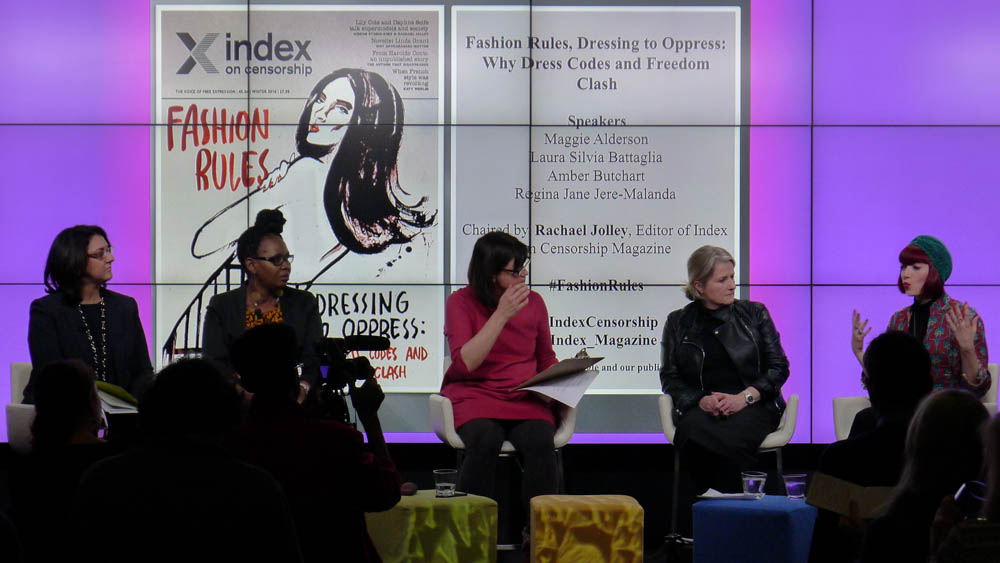
It may be easy to dismiss fashion as a trivial issue, but an expert panel argued otherwise at the launch of the winter 2016 Index on Censorship magazine’s new issue.
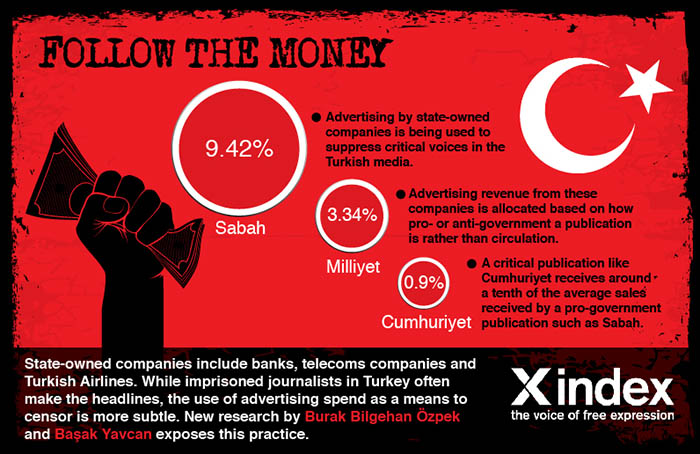
Imprisoned journalists make headlines, but the Turkish government has a more insidious method for controlling the media
A quarterly journal set up in 1972, Index on Censorship magazine has published oppressed writers and refused to be silenced across hundreds of issues.
The brainchild of the poet Stephen Spender, and translator Michael Scammell, the magazine’s very first issue included a never-before-published poem, written while serving a sentence in a labour camp, by the Soviet dissident Aleksandr Solzhenitsyn, who went on to win a Nobel prize later that year.
The magazine continued to be a thorn in the side of Soviet censors, but its scope was far wider. From the beginning, Index declared its mission to stand up for free expression as a fundamental human right for people everywhere – it was particularly vocal in its coverage of the oppressive military regimes of southern Europe and Latin America but was also clear that freedom of expression was not only a problem in faraway dictatorships. The winter 1979 issue, for example, reported on a controversy in the United States in which the Public Broadcasting Service had heavily edited a documentary about racism in Britain and then gone to court attempting to prevent screenings of the original version. Learn more.